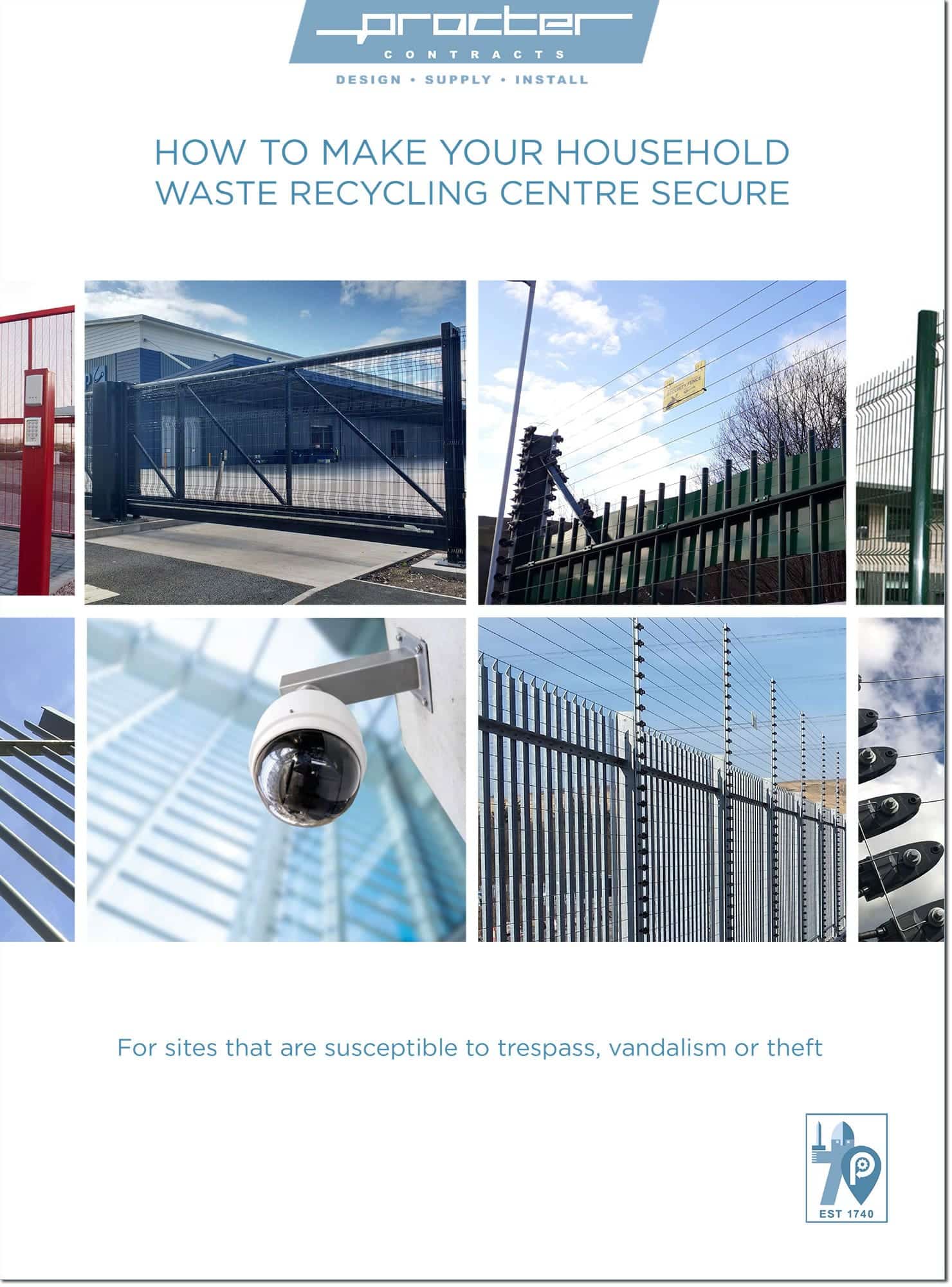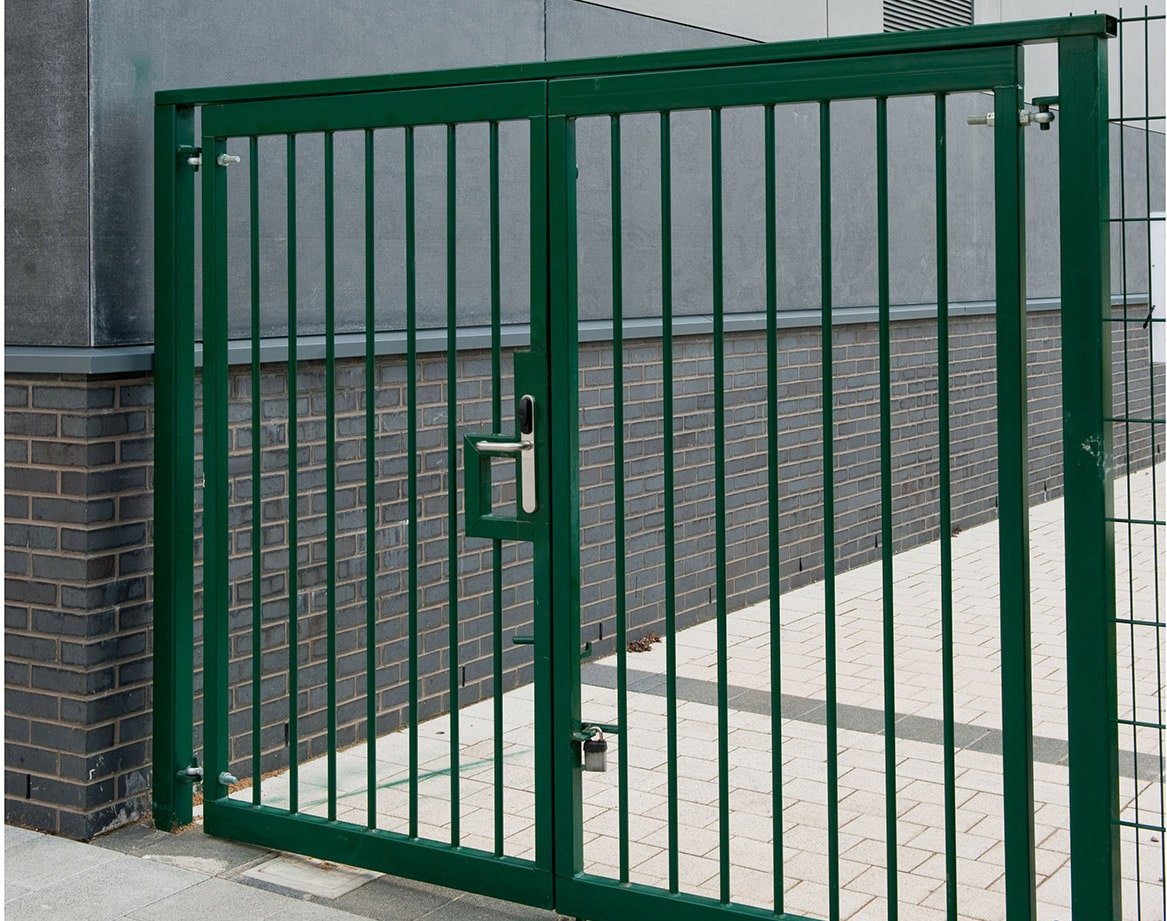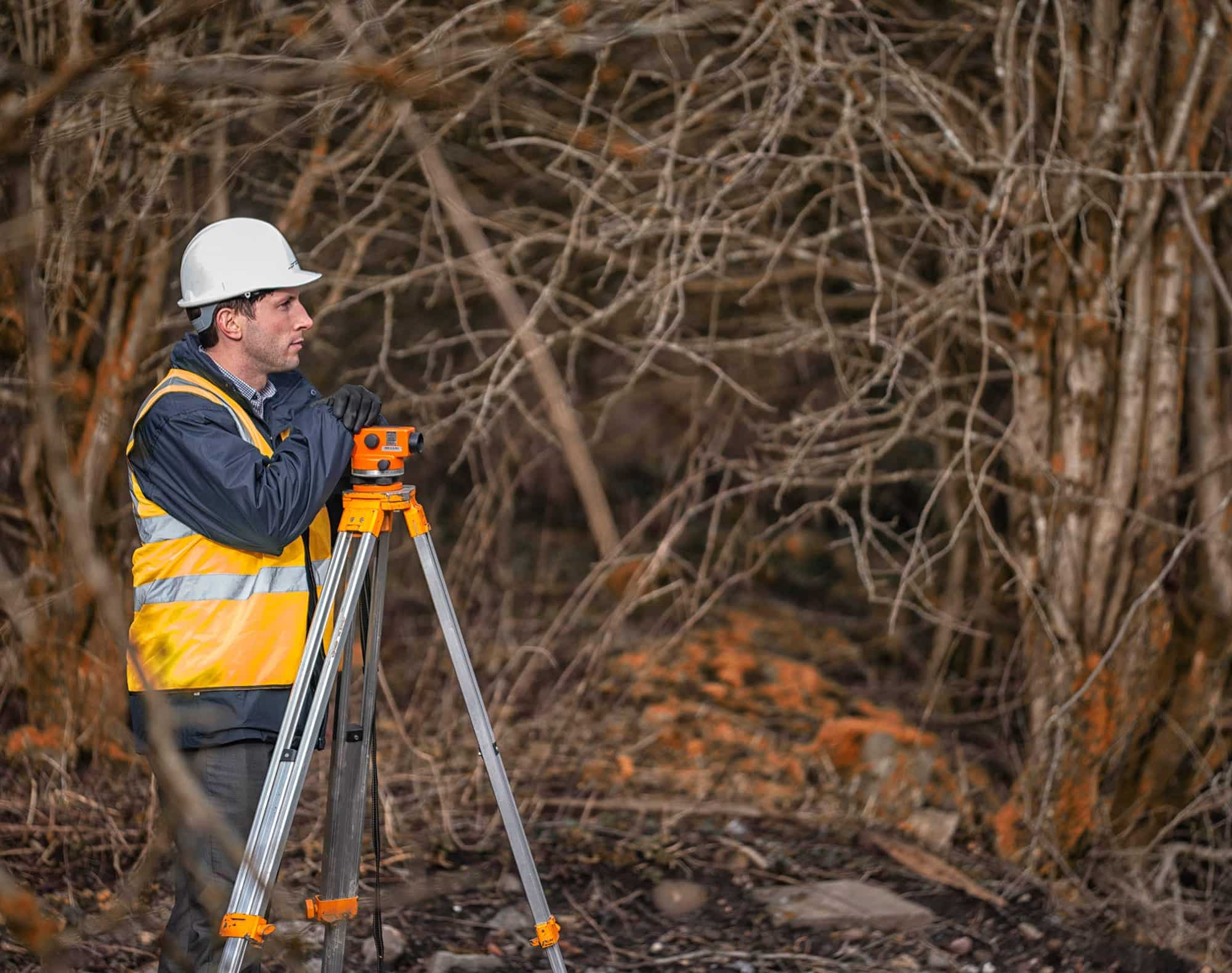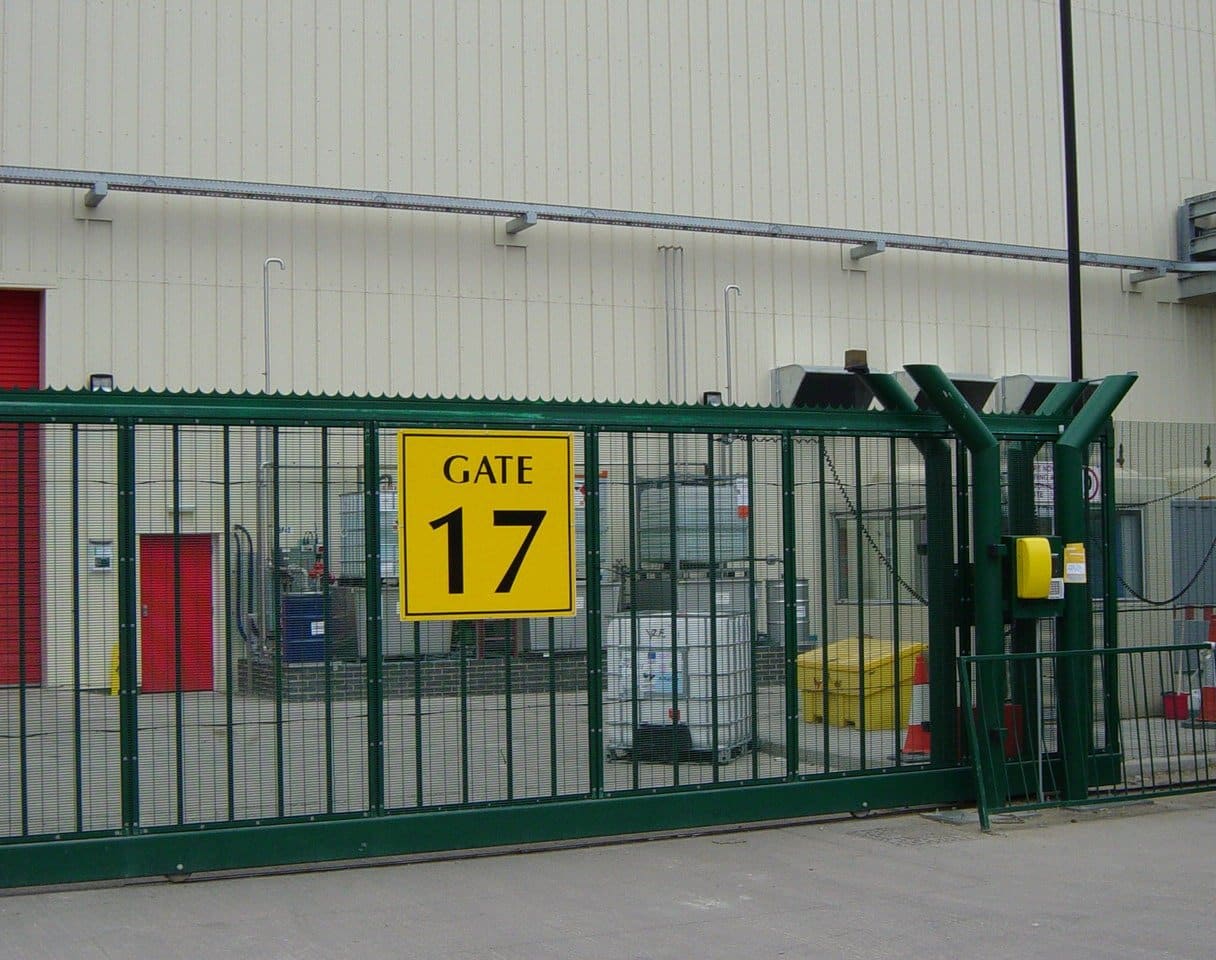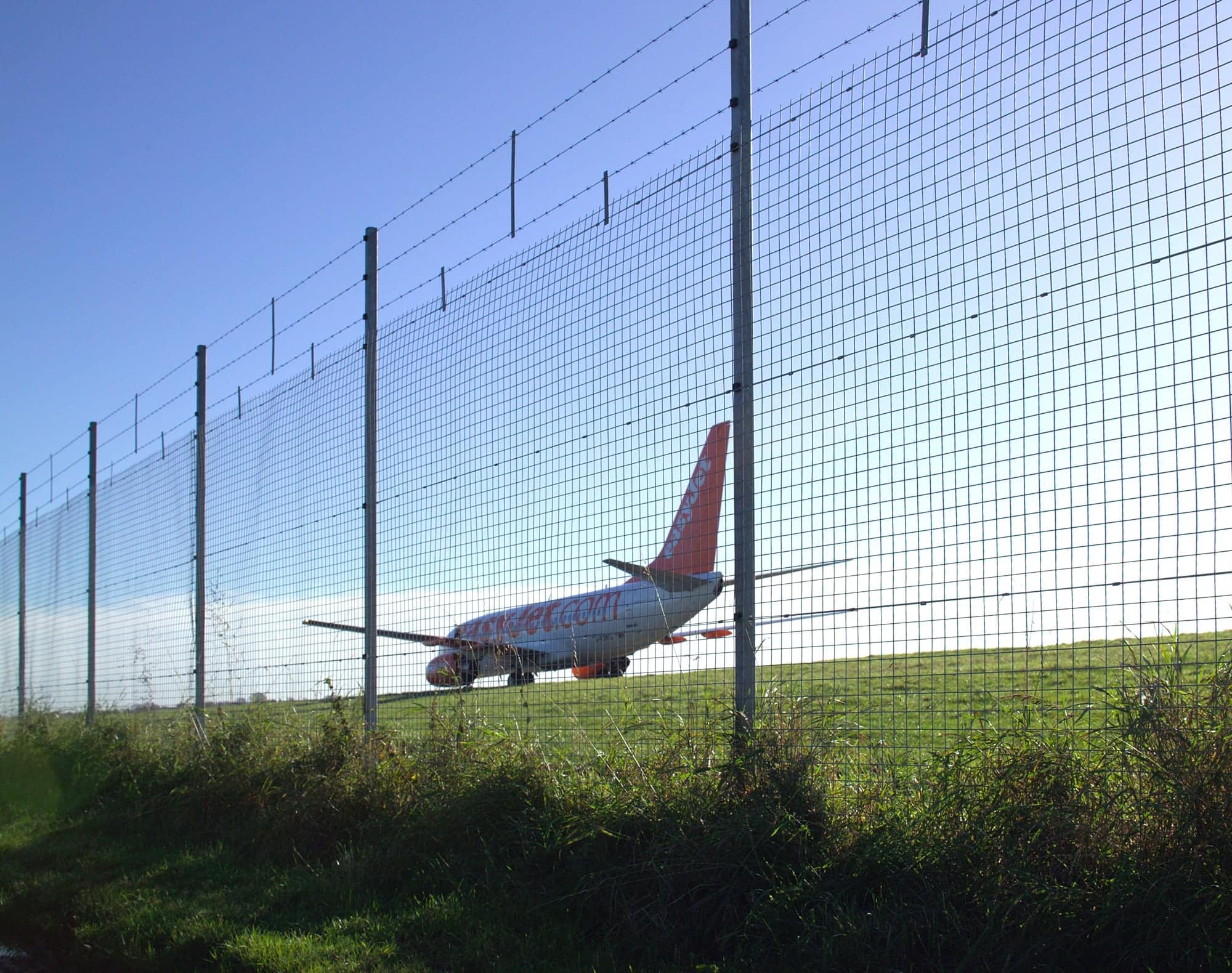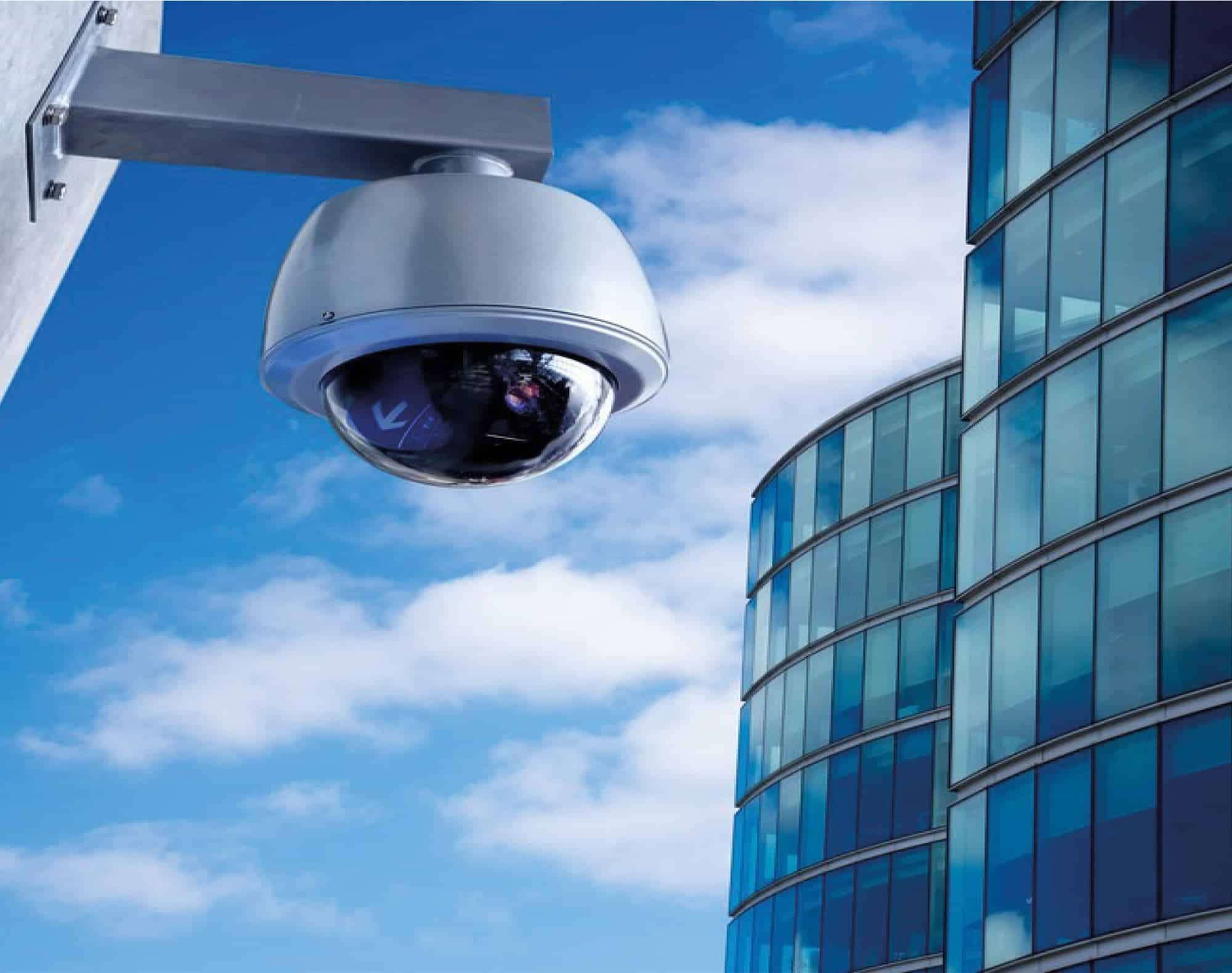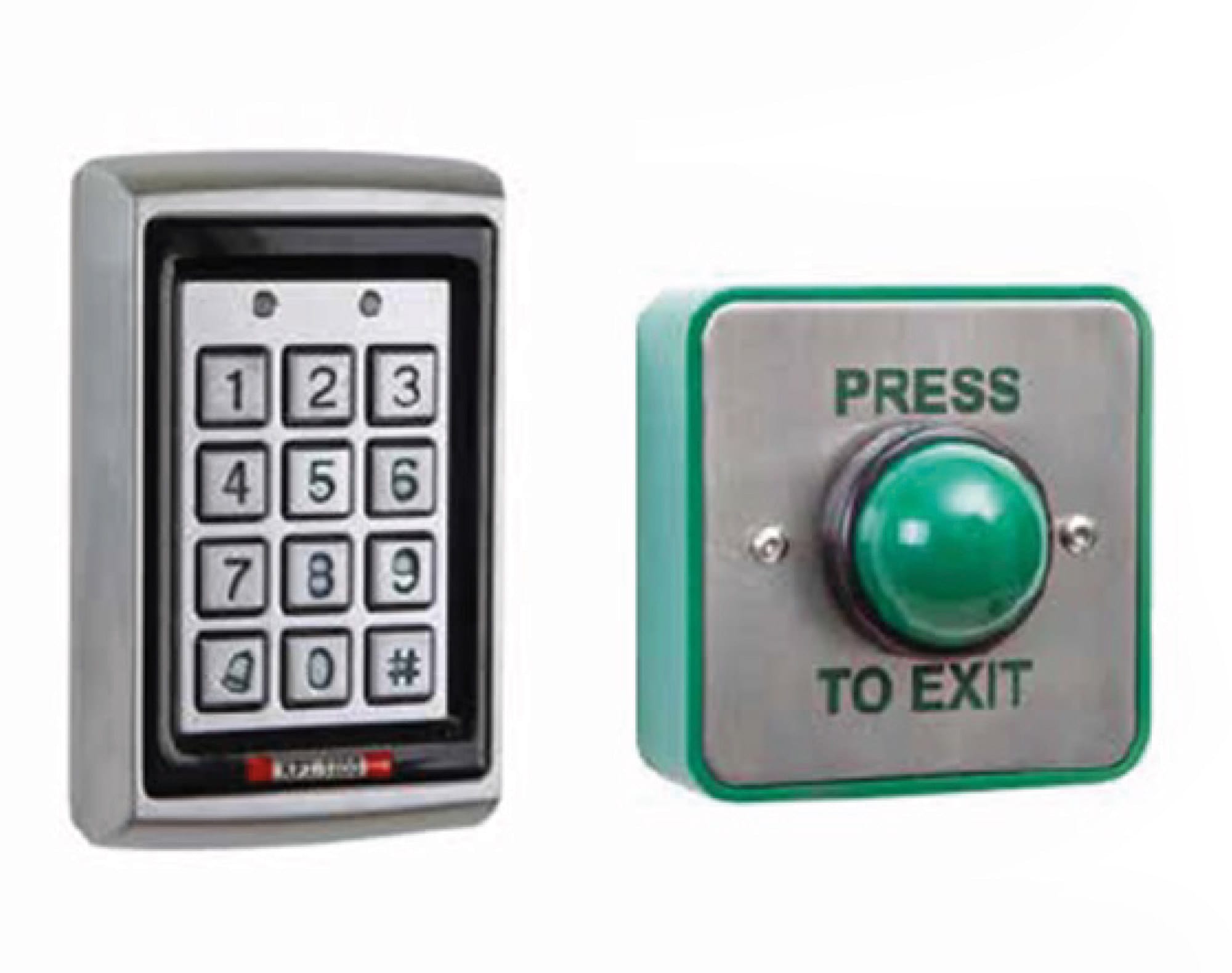How to Make Your Household Waste Recycling Centre Secure
For sites that are susceptible to trespass, vandalism or theft
Who is this guide for?
This guide is aimed at all those involved in the management of Household Waste Recycling Centre’s (HWRC), including local authority officers, waste-management companies and third-sector re-use partners. It is particularly relevant to senior officers in waste teams and key decision makers from local authorities who have responsibility for HWRC provision.
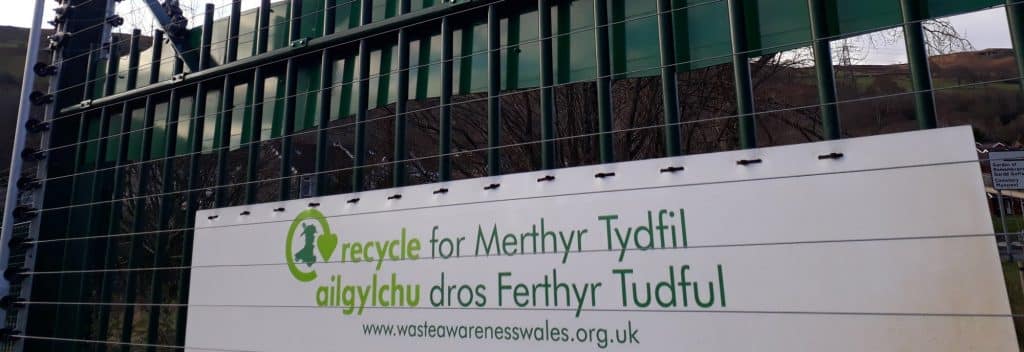
Household waste recycling centres (HWRCs) provide somewhere for members of the public to dispose of unwanted items in a safe,
environmentally-responsible way. However, one person’s rubbish can be a desirable commodity to others, so theft, trespass and vandalism is a serious concern.
The biggest issue is out-of-hours break-ins, with locks, gates and fences being damaged in order
that larger quantities of items can be stolen. This can result in lost revenue streams and reductions in items donated to charity, whilst
also incurring disruption to business continuity and costly repair to damage done to locks, gates and fences.
Perimeter security fencing and gates are the first line of defence around a recycling centre and are therefore vitally important. Furthermore, fencing and gates are a significant factor in the first impression made on visitors, so appropriate high-security fencing and gates act as an effective deterrent.
This Specifier’s Guide to Perimeter Security for Recycling Centres explains the options available, presents the advantages and
limitations of each, and steers the reader towards making the right decisions that will result in the necessary level of security while
taking into account other factors such as costs and aesthetics.
The Complete Solution
Traditionally perimeter security would have been addressed by means of fencing and one or more gates, then other measures added as required. However, the most effective way of securing a site is to consider the entire package of fencing, gates, access control and other
measures such as fence toppings, monitored pulse systems, intruder detection systems, security lighting and CCTV. Furthermore, different areas of the site might benefit from specific measures in order to provide the most cost-effective overall security.
We will now consider individual aspects of the perimeter security in more detail.
Security Starts with A Risk Assessment
Before selecting what measures are required, it is essential to perform a risk assessment to establish the threats and the consequences
of any breaches in security. A risk assessment should consider what requires protection, the likelihood of an attempt to breach security, the likely frequency of attempted breaches, and the potential consequences of breaches in security.
After the perimeter security measures have been selected, the risks should be reevaluated to see if an acceptable level has been achieved. If the risk level is still too high, either the proposed security measures need to be revised, or additional measures — such as
CCTV — may be necessary.
If there is nobody in the organisation that is competent in security risk assessments, then it is strongly recommended that the services
of experts should be sought, as incorrect assessments will give misleading results that could result in inadequate security or unnecessary expenditure on an excessive level of security.
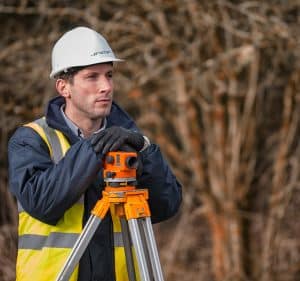
How to Choose the Right Perimeter Fencing for Your Site
Several different types of fencing are available, with the final choice being a question of the relative importance of security, aesthetics and cost. Fences 1.2m high are normally only suitable for boundary demarcation, while a fence 1.8-2.0m high will usually be sufficient to deter casual intruders, and 2.4m fencing is necessary to keep out more determined intruders; where the risk of climbing is felt to be very significant, fences as high as 3-3.5m may be required. Recycling centres will typically place more emphasis on security and cost than aesthetics, but it might be desirable to specify a coloured finish for the fencing and gates at the entrance or at positions that are highly visible to neighbours or passers-by. When specifying a colour, however, it should be remembered that dark fencing provides easier through-visibility and, therefore, better security. Most sites will have some perimeter fencing. The type of fencing needed will depend on site-specific issues, but it should be robust enough to ensure persistent offenders cannot gain access. Some fencing also has barbed wire on top to ensure access cannot be gained from above. Site managers need to take planning and safety regulations into account depending on the type of fencing to be installed. For example, warning signs should be displayed if barbed or razor wire is used.
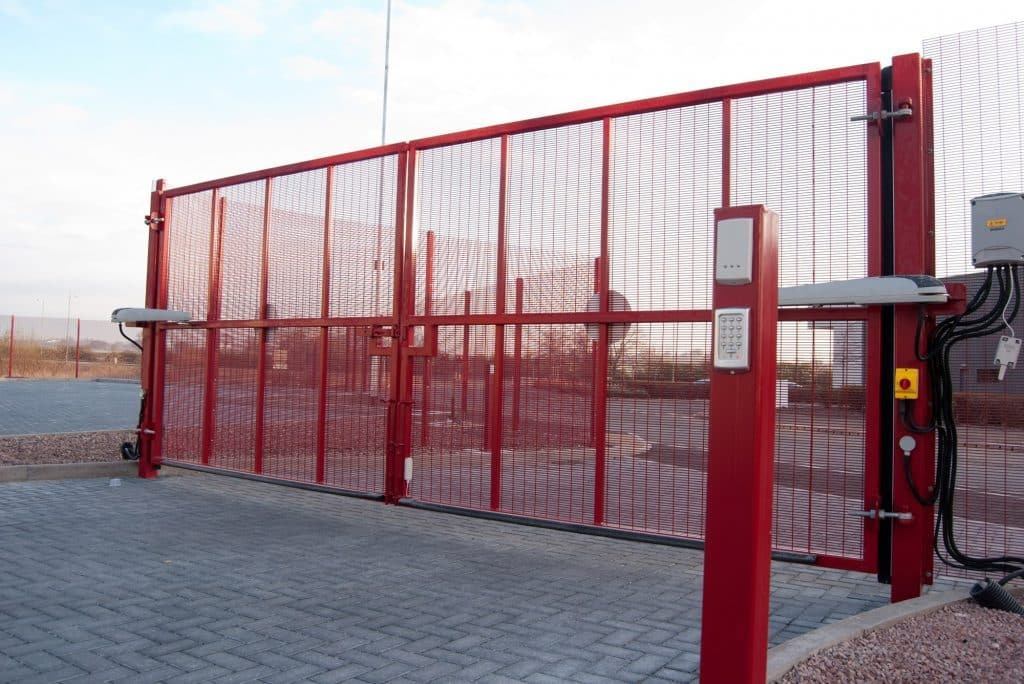
Security Pitfalls to Avoid
Whatever security measures are implemented, care should be taken to avoid the most commonly encountered pitfalls. These include: holes that are left unrepaired; trees or lamp posts adjacent to fencing that make it easy to climb over; fences alongside quiet, unlit roadways where a vehicle can readily — and without attracting attention — be parked to provide an easy route over the fence; and other
items such as wheeled rubbish bins or empty pallets that can be manoeuvred to aid climbing.
The Importance of Correct Installation
Fencing, gates and complementary security measures are only as good as their installation.
Poorly installed fencing detracts from
the appearance of the premises and everybody knows how important first impressions are; a potential intruder may look upon poorly installed fencing as a sign that the recycling centre pays little attention to security.
Furthermore, poorly installed fencing may be easier to breach, and it will be more likely to need repairs and maintenance earlier than would otherwise be necessary — so it will cost more in the long run.
It is vital that powered gates and rising arm barriers are correctly installed because these have the potential to cause severe injuries or even fatalities. In the eyes of the law, a powered gate or barrier is a machine and must be CE marked in accordance with the Machinery Directive. Only after the gate or barrier has been installed and commissioned, complete with all necessary safety devices and taking into
account relevant external factors, can the Declaration of Conformity be issued and the CE mark be applied to indicate that the gate or barrier is safe.
Installing fencing is a skilled job and specifiers should be aware that some fencing contractors hire unskilled labour on a project-by-project basis, rather than retaining a team of properly trained installers. Similarly, gate installation requires personnel with the correct
training and qualifications. It is highly recommended that powered gates are only installed and commissioned by companies and individuals with up-to-date qualifications from the Automated Gate Group of the dhf (Door & Hardware Federation) and the Gate Safe initiative.
Other security products and systems, such as CCTV, floodlighting, access controls or pulse monitored fencing, should also be installed by suitably qualified and experienced personnel if these are to operate correctly, reliably and provide the desired security.
Specifiers today can select from suppliers that have a broad array of other approvals, accreditations and pre-qualifications for working on site as a contractor. These include PSSA, SMAS, Constructionline, Safecontractor, CHAS, Achilles Building Confidence, CSCS and Builders Profile.
Finally, specifiers are strongly recommended only to use contractors with a quality management system accredited to BS EN ISO 9001:2008.
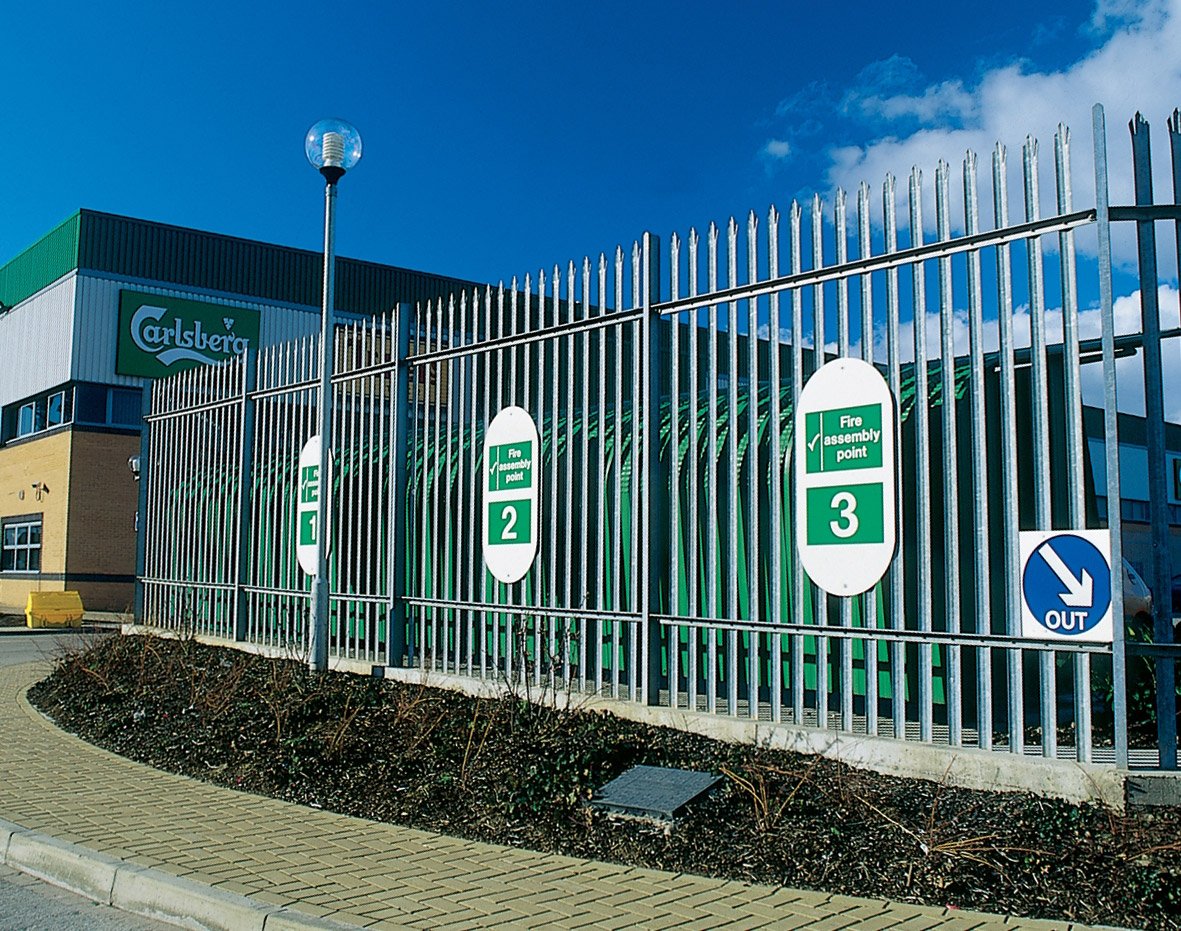
Palisade Fencing
Perfect for deterring intruders
Swing Gates
Simple and low-cost
Gate Maintenance
Prevent in-service failures
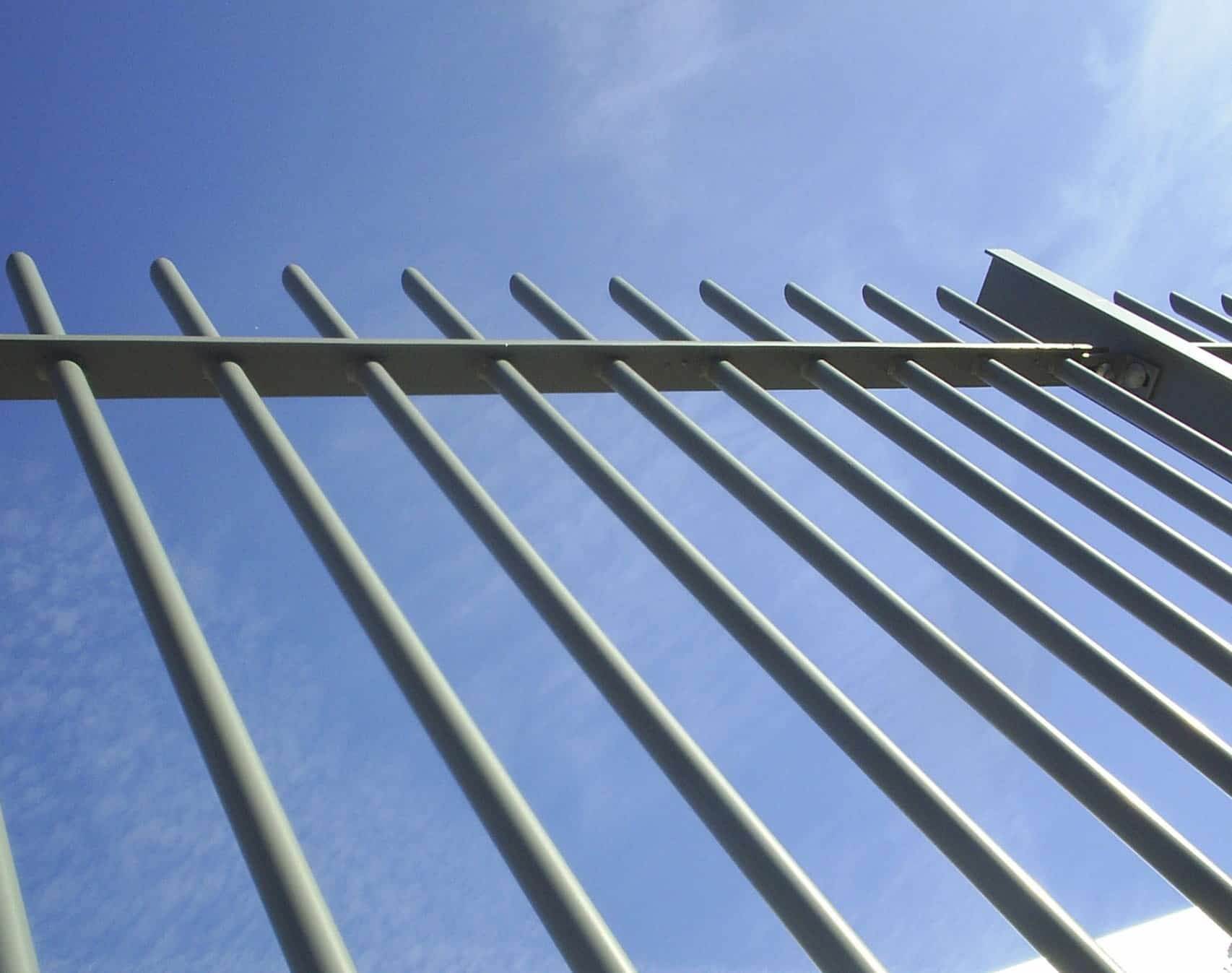
Tubular Railings
High security, no visible fixings
Sliding Gates
Customised or fully bespoke
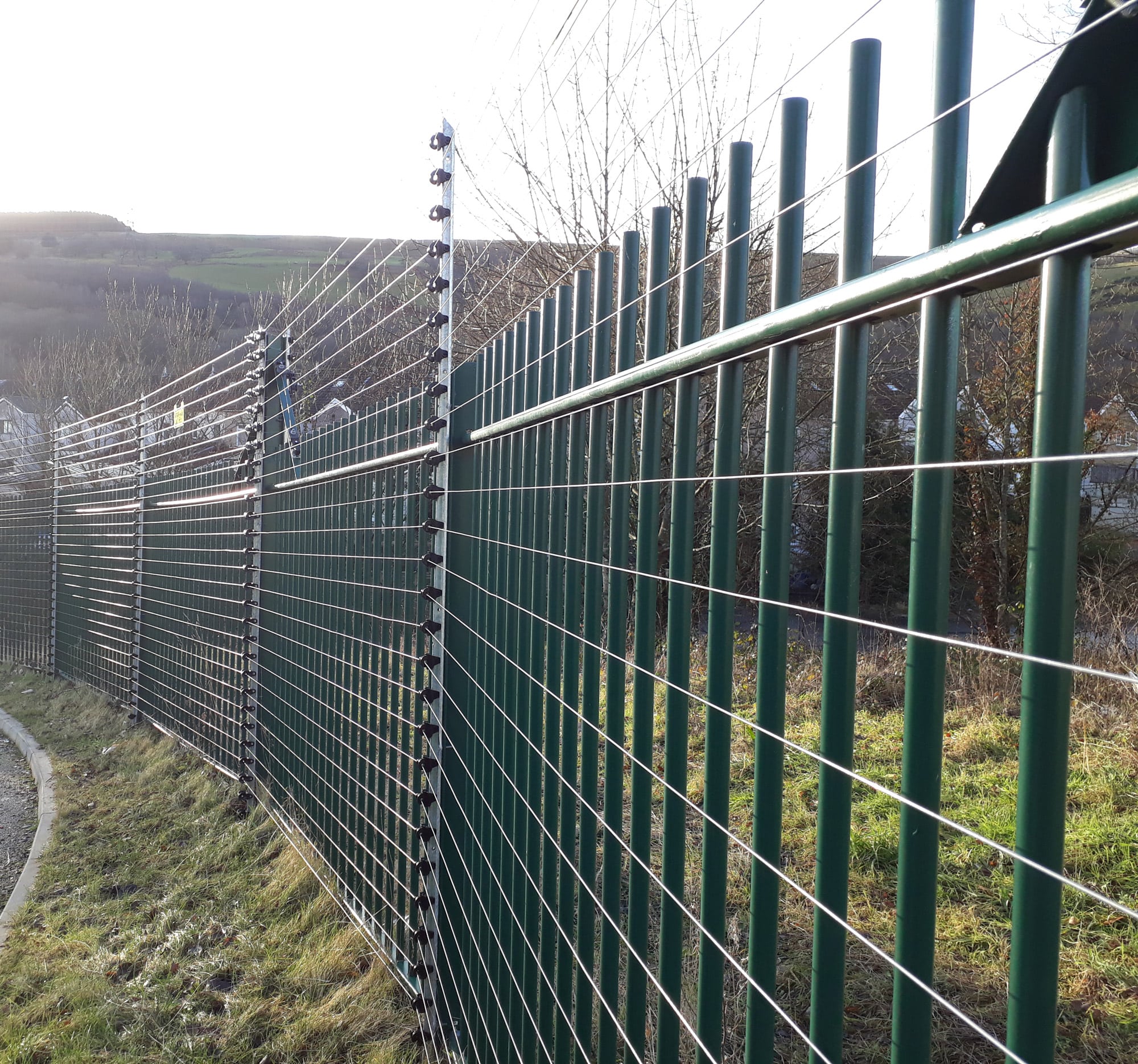
Gate Maintenance
Prevent in-service failures
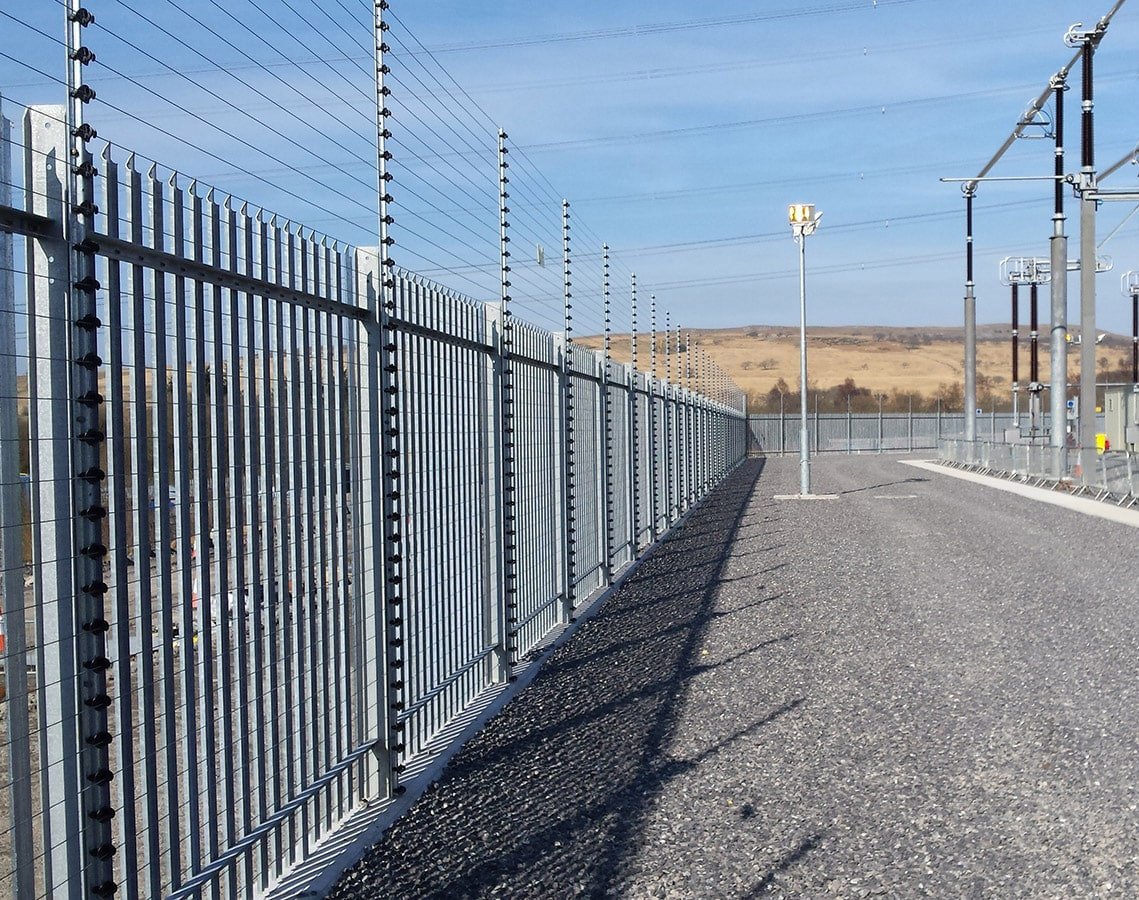
Pulse Monitored Fence
The most effective form of perimeter protection
Access Control
Additional Security Features

